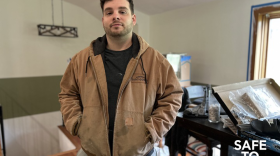Unpublished federal data shows high levels of toxic PFAS chemicals in a sample of food products.
The nonprofit Environmental Working Group obtained details of food samples taken in the mid-Atlantic by the Food and Drug Administration.
They found elevated levels of various types of PFAS in meat and seafood products, as well as chocolate cake and other items.
Right now, state and federal regulators are prioritizing drinking water as the primary path for PFAS exposure.
New Hampshire officials are due to propose new PFAS limits for public water systems this month. They’re also suing the makers of the chemicals for water contamination.
Jamie DeWitt is a toxicology professor at East Carolina State University who spoke on an EWG press call. She says food and water may create different risks, based on how we consume them. But she says federal regulators should still take more action.
"I think these data do lead to the question: is it time for a comprehensive risk assessment for PFAS that includes more than just drinking water?” she says.
PFAS is thought to enter food from treated packaging, or potentially certain kinds of fertilizer.
A Maine dairy farm was recently all but shut down after PFAS turned up in its cows' milk.
"We think it's really clear that EPA should require testing of sewage sludge before it is applied to land to determine whether or not there are PFAS chemicals,” says EWG legislative director Colin O’Neil.
Fertilizer handlers in New Hampshire say they’re working on new ways to prevent PFAS entering their products. And state regulators are also considering their options.








